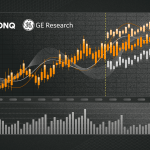Quantum News Briefs June 28: Tech executives urge government to share cyber threat intel from quantum computing & AI; Quantum network between two national labs achieves record synch, Quantum industry in Europe & MORE

Quantum News Briefs opens today with the recent testimony tech leaders made before a House subcommittee in which they urged lawmakers to share more intelligence about cyber threats stemming from quantum computing; followed by a review of the state of industrial quantum technology in Europe. The success of the recent record-breaking, long-distance quantum network between two U.S. labs is here today and MORE.
Tech Executives Urge Government to Share Cyber Threat Intel that Stem from Quantum Computing & AI

Tech leaders testifying last week before a House subcommittee on cyber told lawmakers that more coordination is needed between the public and the private sector to identify security threats, including cyber, that stem from emerging technologies like quantum computing and artificial intelligence, according to a recent article from The Hill.
Ron Green, executive vice president and chief security officer at Mastercard, said that partnership should incentivize the government to share threat intelligence to the private sector so that both sectors are able to mitigate cybersecurity risks posed by U.S. adversaries both at home and abroad.
Green, who was joined by three other tech leaders, made his remarks during a House Homeland Security subpanel that touched on the intersection between emerging technologies and security risks.
Robert Knake, a U.S. official at the White House’s Office of the National Cyber Director, told lawmakers in April that companies are increasingly asking the government to share cyber threat intelligence as they seek to prepare and counter growing security threats.
Those calls to action have been emboldened by President Biden’s executive order on cybersecurity which introduced several key initiatives.
*****
Rigetti Computing to Join Russell 3000 Index
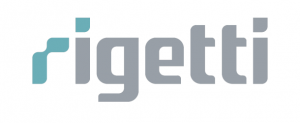 Rigetti Computing, Inc. has announced it is set to join the Russell 3000 Index. Inclusion is scheduled to take place at the conclusion of the 2022 Russell indexes annual reconstitution, effective after the US market opens on June 27, 2022, according to the final list of additions posted June 24, 2022.
Rigetti Computing, Inc. has announced it is set to join the Russell 3000 Index. Inclusion is scheduled to take place at the conclusion of the 2022 Russell indexes annual reconstitution, effective after the US market opens on June 27, 2022, according to the final list of additions posted June 24, 2022.
“Inclusion in the Russell 3000 Index is an exciting development as we work to highlight Rigetti’s pioneering role in the quantum computing industry,” said Chad Rigetti, Founder and CEO.
FTSE Russell, a leading global index provider for investment managers and institutional investors, uses objective market-capitalization rankings and style attributes to determine index membership. Nearly 70% of actively managed institutional equity assets are benchmarked to a Russell US Index, and approximately $12 trillion in assets track Russell US Indexes.
The Russell reconstitution occurs annually to ensure Russell US Indexes accurately reflect the current market state. The Russell 3000 Index consists of the largest 3,000 publicly traded U.S. companies.
*****
Quantum Network Between Two National Labs Achieves Record Synch
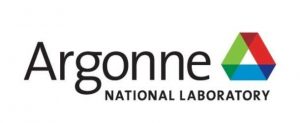
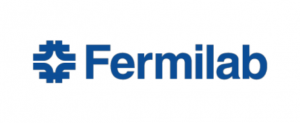
Recently, as a sort of proof of potential and a first step toward functional quantum networks, a team of researchers with the Illinois‐Express Quantum Network (IEQNET) successfully deployed a long-distance quantum network between two U.S. Department of Energy (DOE) laboratories using local fiber optics.
The experiment marked the first time that quantum-encoded photons — the particle through which quantum information is delivered — and classical signals were simultaneously delivered across a metropolitan-scale distance with an unprecedented level of synchronization.
The IEQNET collaboration includes the DOE’s Fermi National Accelerator and Argonne National laboratories, Northwestern University and Caltech. Their success is derived, in part, from the fact that its members encompass the breadth of computing architectures, from classical and quantum to hybrid.
“To have two national labs that are 50 kilometers apart, working on quantum networks with this shared range of technical capability and expertise, is not a trivial thing,” said Panagiotis Spentzouris, head of the Quantum Science Program at Fermilab and lead researcher on the project. “You need a diverse team to attack this very difficult and complex problem.”
This project was funded through the DOE Office of Science, Advanced Scientific Computing Research program.
*****
Rensselaer Announces Institute for Data, Artificial Intelligence, and Computing
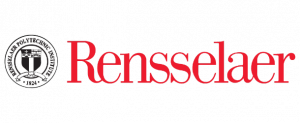 Rensselaer Polytechnic Institute President Shirley Ann Jackson recently announced the launch of the Rensselaer Institute for Data, Artificial Intelligence, and Computing (DAIC). The goal of the Institute is to become the primary academic center in the country for advancing new computational paradigms, including those that are a hybrid of conventional, neuromorphic, and quantum computing — combining bits, neurons, and qubits, which will make it possible to solve problems that current computing systems cannot. The new institute will allow Rensselaer to innovate using quantum computing and edge computing for networks and cyber-physical systems, and hacker-proof quantum communications.
Rensselaer Polytechnic Institute President Shirley Ann Jackson recently announced the launch of the Rensselaer Institute for Data, Artificial Intelligence, and Computing (DAIC). The goal of the Institute is to become the primary academic center in the country for advancing new computational paradigms, including those that are a hybrid of conventional, neuromorphic, and quantum computing — combining bits, neurons, and qubits, which will make it possible to solve problems that current computing systems cannot. The new institute will allow Rensselaer to innovate using quantum computing and edge computing for networks and cyber-physical systems, and hacker-proof quantum communications.
The Institute for Data, Artificial Intelligence, and Computing will be built upon the strength Rensselaer has already developed in areas such as data science and data analytics, quantum and neuromorphic computing, artificial intelligence (AI)-enabled high-performance computing, and AI-driven gamification in immersive virtual reality and augmented reality environments.
DAIC will be a multidisciplinary Institute and vibrant hub for world-class research and associated graduate education at Rensselaer, offering graduate degrees and certificates in emerging fields related to data, artificial intelligence, and computing.
*****
The State of Industrial Quantum Technology in Europe
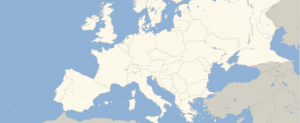 Andreas Thoss recently wrote an extensive commentary about the state of industrial quantum technology in Europe based on presentations made at the quantum technology and photonics symposium of the International Laser Technology Congress in Aachen, Germany. Thoss’ remarks summarized in this brief.
Andreas Thoss recently wrote an extensive commentary about the state of industrial quantum technology in Europe based on presentations made at the quantum technology and photonics symposium of the International Laser Technology Congress in Aachen, Germany. Thoss’ remarks summarized in this brief.
Big tech usually refers to the likes of Apple, Google, or Huawei, but Thoss covered corporations with roots in Europe.
Thoss reminds us that Germany has a few famous market leaders.
Bosch’s engagement with quantum projects started as early as 2013, Bosch’s chief expert for quantum technologies Robert Strohm reported at AKL’22. The company engages with projects in quantum sensing and quantum cryptography, as well as quantum computing. Bosch develops quantum algorithms already for real-world research. They simulate new materials for fields such as fuel cells to explore how long they’ll live.
As a supplier of semiconductor chips, Infineon addresses the hardware layers of a quantum computer architecture and the application. They focus on control electronics, readout electronics, and quantum processing units (QPUs). Luber showed Infineon’s path to superconducting qubits, where they apply their established tunnel junction fabrication processes.
Together with researchers at RWTH Aachen University, FZ Jülich, and Fraunhofer IPMS, they also work on spin qubits on silicon wafers (project QLSI). They’re trying to establish CMOS-like concepts to get an integrated 16-qubit chip.
Bosch and Infineon are members of the Quantum Technology and Application Consortium (QUTAC), where they pool findings with 10 heavyweights of German industry such as Siemens, BASF, or Volkswagen.
QuTech, is a Dutch research institute with about 300 people. QuTech was founded in 2014 as a collaboration between Delft University of Technology (TU Delft) and the Netherlands Organisation for Applied Scientific Research (TNO). QuTech’s Wolfgang Tittel recently spoke in Aachen about their path from single-photon sources to reliable quantum repeaters. These are needed for the quantum internet of the future, when direct fiber connection is replaced by a network structure with nodes.
Bernd Jungbluth, from Aachen’s Fraunhofer ILT and chair of the forum, sums up his impressions: “It was amazing to see how broad industry giants like Bosch and Infineon are positioned.” They are using their full technological strengths to approach a wide range of different applications, and the progress they’ve made within the past two years is impressive.
Thoss’ commentary is summarized in this brief, but his complete discussion is https://www.laserfocusworld.com/blogs/article/14278679/how-do-european-companies-develop-quantum-technologies
*****
Sandra K. Helsel, Ph.D. has been researching and reporting on frontier technologies since 1990. She has her Ph.D. from the University of Arizona.


















